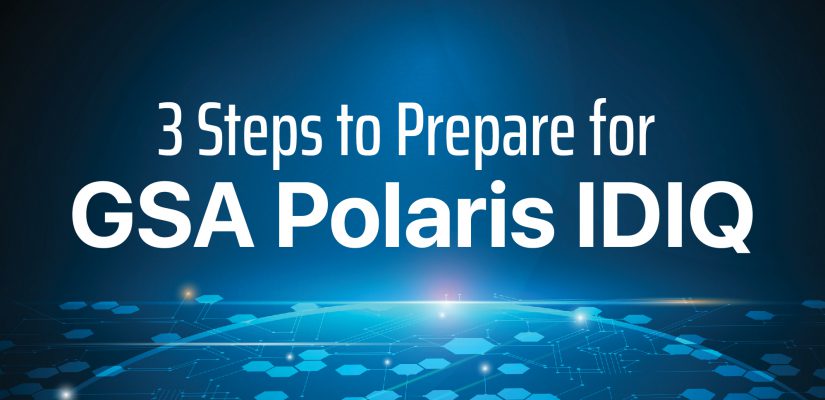
3 Steps to Prepare for GSA Polaris IDIQ
First things first: what is GSA Polaris? GSA Polaris Government wide Acquisition Contract (GWAC) is a Multiple Award, Indefinite Delivery Indefinite Quantity (IDIQ) contract with a $XXX billion contract ceiling. Through GSA Polaris, agencies across the government will be able to procure innovative and emerging information technology (IT) solutions and services from a range of companies, including Women-Owned and HUBZone Small Businesses.
So, what’s in it for you?
GSA Polaris specifically targets small businesses, with multiple awards available for those with varying socioeconomic backgrounds. That means you get to choose from a range of pool preferences, while your business gets the competitive edge it needs in the market.
Here’s three simple things you can do to prepare yourself for the GSA Polaris bid today:
Step 1: Understanding how GSA Polaris varies from Alliant 2 SB
While the GWAC is open to all small businesses, the key difference is that GSA Polaris allows for awards that specifically cater to HUBZone and Women-Owned Small Businesses (WOSB). Further, projects will now be based on ‘Primary’ and ‘Emerging Technologies,’ as opposed to Alliant’s ‘Product Service Codes (PSC)’ or ‘Leading Edge Technologies (LETS).’ Some other notable disparities include new individual score criteria for subcontracting, cloud, and cybersecurity, as well as the lack of a price submission mandate. Keep these in mind as you begin preparing your proposal plan.
Step 2: Know your strengths and gaps
The Polaris GWAC is expected to welcome the dawn of digital, with emphasis on Artificial Intelligence (AI), blockchain, and Everything as a Service (XaaS). In order to increase your scoring, make sure you work with your current clients to get your innovation documented into the Statement of Work (SoW) or as a mod to the SoW. Use professional and experienced proposal companies who can help guide your pre-RFP efforts with the scorecard in mind.
Step 3: Don’t begin forming your team until you know what you need
Teaming is commonplace, expected, and will absolutely help your scorecard. However, before you talk to any company about teaming, first know your own strengths and gaps. Prepare yourself to ask potential teaming partners the right questions before you commit to teaming with them. Let your capture and proposal team vet the potential teaming partners against the scorecard. This will help you focus on companies that can bridge any identified gaps, thereby increasing your overall score.
ProposalHelper is the largest employee-only bid and proposal management company supporting government contractors in the United States. ProposalHelper helps companies worldwide enter, expand, and grow their business in the public and commercial sectors across almost every industry vertical.
Visit us at www.proposalhelper.com today.